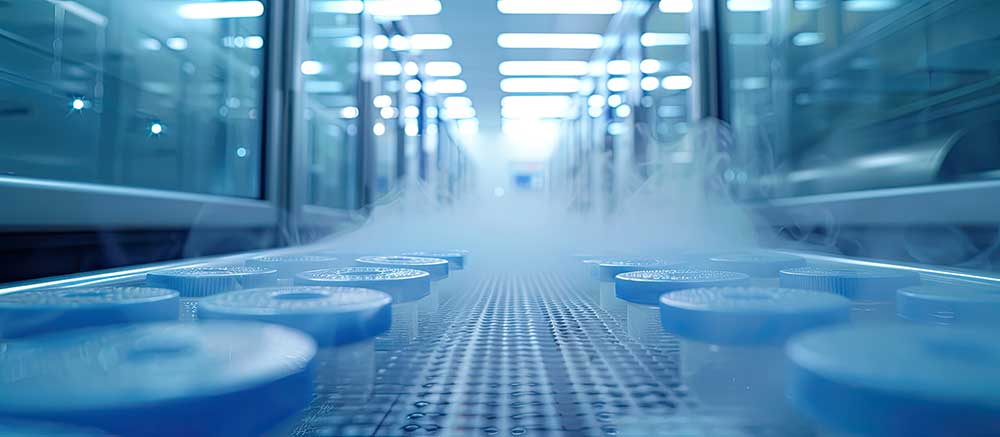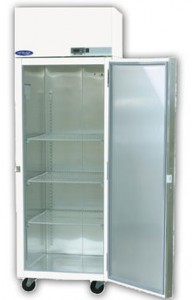
Preserving Enzyme Activity: The Crucial Role of Enzyme Storage Lab Freezers
Enzymes are the workhorses of biochemistry, catalyzing the myriad reactions that drive life. These biological catalysts facilitate virtually every chemical process within living organisms, and without them, metabolic reactions would occur far too slowly to sustain life. Researchers rely heavily on enzymes for their studies, making proper storage paramount. Improper storage can lead to enzyme denaturation and loss of catalytic activity, rendering experiments invalid and wasting valuable resources. This is why specialized enzyme storage lab freezers are essential for any laboratory working with enzymes.
Why Proper Enzyme Storage is Critical
Enzymes are delicate molecules. While they are incredibly efficient catalysts, they are also susceptible to environmental factors, particularly temperature. Storing enzymes at temperatures above their recommended range can cause them to gradually denature, losing their three-dimensional structure and, consequently, their catalytic activity. This loss of activity can have significant repercussions:
- Failed Experiments: As many researchers have experienced, including the author, using degraded enzymes in experiments can lead to inaccurate results, wasted time, and financial losses.
- Compromised Research: Inconsistent enzyme activity can compromise the integrity of research findings and hinder scientific progress.
- Wasted Resources: Enzymes, especially purified enzymes, can be expensive. Improper storage leads to product loss and the need for costly replacements.
Why Not Just a Regular Freezer?
Household or commercial freezers are simply not suitable for enzyme storage. These freezers lack the precise temperature control and crucial alarm features necessary to maintain the integrity of sensitive enzymes. Key deficiencies include:
- Inconsistent Temperature Control: Household freezers often exhibit temperature fluctuations that can be detrimental to enzyme stability.
- Lack of Alarms: Without a reliable alarm system, temperature excursions may go unnoticed, leading to enzyme degradation and experimental failure.
- Automatic Defrost Cycles: The temperature fluctuations associated with automatic defrost cycles can be particularly damaging to enzymes.
The Solution: Specialized Enzyme Storage Lab Freezers
Enzyme storage lab freezers, such as those manufactured by Nor-Lake Scientific and available through Tovatech, are specifically designed to address the unique storage requirements of enzymes. These specialized freezers offer several critical features:
- Precise Temperature Control: Microprocessor controls with enlarged LED digital temperature displays ensure accurate temperature maintenance, typically within 1˚C, within the recommended storage range of -10 to -25˚C (+14 to -13˚F).
- Temperature Alarms: Visual and/or audible alarms alert researchers to any temperature fluctuations outside the set range, allowing for immediate corrective action.
- Manual Defrost: Manual defrost freezers are crucial for enzyme storage. They eliminate the temperature swings associated with automatic defrost cycles. While requiring temporary transfer of contents, the stability of the samples is prioritized.
- Durable Construction: Heavy-duty spring-loaded hinges, self-closing solid doors with magnetic gaskets, and robust compressors ensure reliable performance and long-term durability.
- Condensate Management: A cold-water evaporator efficiently handles condensate, preventing ice buildup and maintaining consistent temperatures.
- Top-Mounted Compressor: This design vents heat away from the unit’s base, contributing to more stable internal temperatures.
Choosing the Right Enzyme Storage Lab Freezer
When selecting an enzyme storage lab freezer, consider the following factors:
- Capacity: Choose a freezer with sufficient storage capacity to accommodate your current and future needs.
- Temperature Range: Ensure the freezer can achieve and maintain the specific temperature range required for your enzymes.
- Alarm System: A reliable alarm system is crucial for protecting your valuable enzymes.
- Defrost Type: Always opt for a manual defrost freezer for enzyme storage.
- Energy Efficiency: Consider the energy consumption of the freezer, especially if it will be running continuously.
- Manufacturer Reputation and Support: Choose a reputable manufacturer that offers reliable products and excellent customer support.
Best Practices for Enzyme Storage
- Proper Labeling: Clearly label all enzyme containers with the enzyme name, concentration, date of receipt, and storage instructions.
- Inventory Management: Maintain an inventory of your enzymes to track usage and ensure timely reordering.
- Regular Maintenance: Perform regular maintenance on your freezer, including cleaning and defrosting, to ensure optimal performance.
- Avoid Freeze-Thaw Cycles: Minimize freeze-thaw cycles as they can damage enzymes. Aliquot enzymes into smaller vials to avoid repeated thawing.
Contact Tovatech for Assistance with Your Lab Freezer Purchase
Proper enzyme storage is essential for maintaining enzyme activity, ensuring experimental accuracy, and preserving valuable research resources. Investing in a high-quality enzyme storage lab freezer is a worthwhile investment for any laboratory working with enzymes. By following best practices for storage and maintenance, researchers can maximize the lifespan of their enzymes and ensure the success of their experiments.

